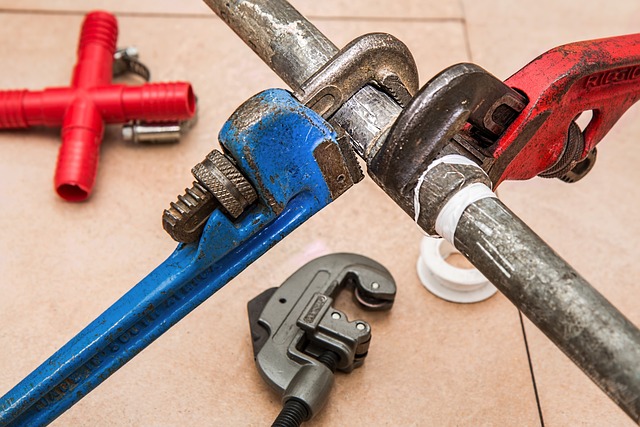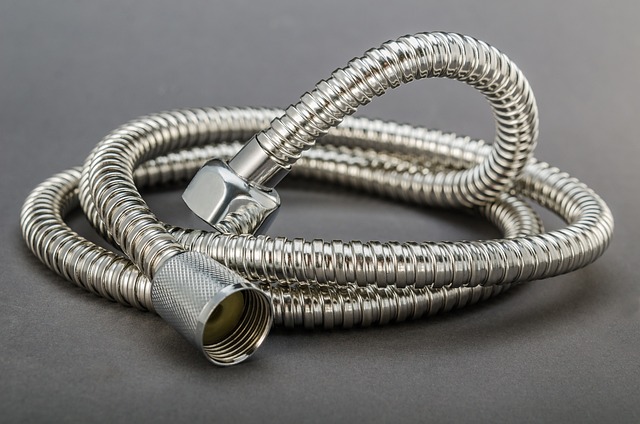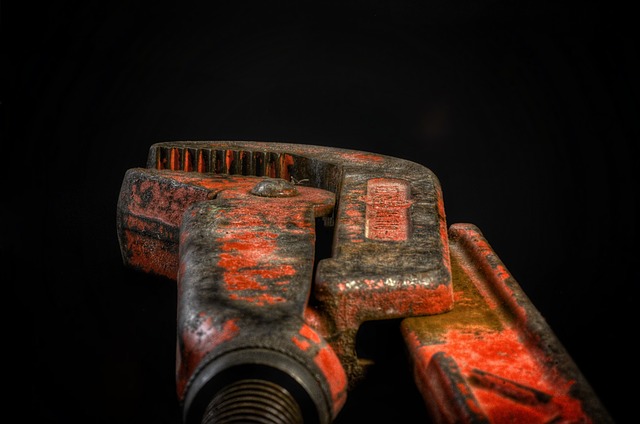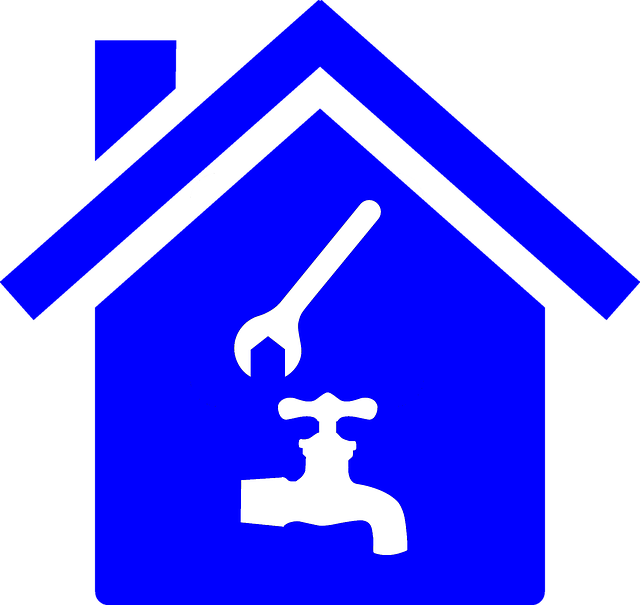When confronted with leaking pipes, clogged drains, or any other plumbing issues, understanding the associated costs is crucial for homeowners and renters alike. This article dissects the average expenses incurred when hiring plumbers, offering a comprehensive guide to navigating plumbing service fees. From common repairs to emergency situations, learn how various factors influence pricing and what to consider when budgeting for professional plumbing assistance. Whether you’re dealing with a minor fix or a major overhaul, this insightful piece will equip you with the knowledge to make informed decisions and compare costs effectively.
- Understanding Plumbing Service Costs: An Overview
- Factors Influencing the Cost of Plumbing Services
- Common Plumbing Repairs and Their Associated Costs
- Emergency Plumbing Situations: Additional Charges to Consider
- The Role of Location in Determining Plumber Rates
- Hiring a Plumber: Tips for Budgeting and Comparison Shopping
Understanding Plumbing Service Costs: An Overview

When considering the average cost of plumbing services, it’s crucial to understand that pricing can vary widely based on several factors including the type of service required, regional differences, and the complexity of the job. Plumbers often charge different rates for routine maintenance, emergency repairs, or new installations. For example, a basic fix such as unclogging a drain might have a lower cost, while more complex issues like sewer line replacement can be significantly higher. Geographic location also plays a role; plumbing service costs can differ from one area to another due to labor rates and the cost of living in a particular region.
Furthermore, the cost structure for plumbers’ services typically includes an hourly rate or a flat fee for certain tasks. Some plumbers may charge additional fees for after-hours service, travel expenses, or parts and materials. It’s also common for plumbing companies to provide a written estimate before work commences, which can help homeowners budget for the necessary repairs. To get an accurate understanding of what plumbing services might cost, it’s advisable to obtain multiple quotes from licensed plumbers in your area. This not only helps in comparing prices but also ensures that you are dealing with professionals who adhere to local codes and regulations.
Factors Influencing the Cost of Plumbing Services

When considering the average cost of plumbing services, several factors influence the final price tag. The type and complexity of the job are primary determinants; a simple fix like unclogging a drain will typically cost less than extensive work such as repiping an entire home. Geographic location plays a significant role as well; costs can vary widely from one region to another due to differences in labor rates and market demand. The experience and reputation of the plumber are also influential, with highly skilled professionals often commanding higher fees. Additionally, the materials required for the repair or installation can affect the cost, with premium options being pricier than standard parts. The time of day and emergency situations can lead to additional charges due to the urgency and inconvenience factor involved in after-hours plumbing services. Lastly, the complexity of the project’s scope, including any necessary permits or inspections, will also impact the overall cost. Understanding these factors helps consumers make informed decisions when hiring plumbers for their plumbing needs.
Common Plumbing Repairs and Their Associated Costs

When it comes to plumbing services, homeowners and renters alike often encounter a range of common repairs that can vary significantly in cost. A leaky faucet or running toilet, while relatively minor issues, are among the most frequent calls for plumbers. The average cost to fix a leaky faucet typically ranges from $100 to $225, with labor accounting for about 45% of the total price and parts contributing to the rest. Meanwhile, repairing a running toilet can cost between $150 and $300, as this often involves more complex components such as flappers, fill valves, or flush valves.
More involved repairs, like those for clogged drains or sewer line issues, tend to have higher costs due to the complexity of the work and potential need for specialized equipment. A simple drain clog might cost between $50 and $150, but if the blockage is severe or located deep within the pipes, the expense can escalate to several hundred dollars. Sewer line repairs are among the priciest plumbing services, with costs ranging from $300 to over $5,000, depending on the extent of the damage and whether trenchless technology is used to minimize disruption. Plumbers charge varying rates for their expertise, which can influence the overall cost. It’s advisable to obtain multiple quotes to understand the range of prices for different plumbing services and to ensure that you are getting a fair price for the work required.
Emergency Plumbing Situations: Additional Charges to Consider

When encountering emergency plumbing situations, the costs associated with resolving them can vary significantly from routine repairs due to the urgency and complexity of the issue. Typically, plumbers charge higher rates for after-hours services because emergency calls often come outside regular business hours. These additional charges reflect not only the inconvenience of being summoned at unusual times but also the readiness to drop whatever they are doing and prioritize your urgent needs. For instance, a burst pipe that could cause extensive water damage must be addressed immediately, and the plumber’s ability to respond swiftly can prevent further damage, which in itself justifies the premium rate. Additionally, the cost may include factors such as the type of service required, the skill level of the plumber needed for the job, the geographic location, and the time of day or week. It’s advisable to inquire about any potential additional costs with your plumber before they begin work to avoid surprises on your bill. Understanding the various components that contribute to the total cost can help you make informed decisions and budget effectively for unexpected plumbing emergencies.
The Role of Location in Determining Plumber Rates

When considering the average cost of plumbing services, one must take into account the varying rates influenced by location. Geographic diversity plays a significant role in dictating the charges plumbers command. This is due to factors such as regional economic conditions, the cost of living, and the supply and demand dynamics within a particular area. For instance, in densely populated urban centers like New York City or Los Angeles, the higher cost of living translates into pricier service fees. On the other hand, plumbers in smaller towns or rural areas may charge less due to lower overhead costs and a potentially less competitive market. Additionally, regional differences in labor laws and licensing requirements can affect prices, as can the availability of specialized services. It’s advisable for individuals seeking plumbing services to obtain multiple quotes from local plumbers, as prices can vary significantly even between neighboring towns or cities. This approach not only helps in understanding the local market rates but also ensures that consumers are making informed decisions based on their specific location and the scope of work required.
Hiring a Plumber: Tips for Budgeting and Comparison Shopping

When considering the average cost of plumbing services, it’s clear that numerous factors influence these expenses. From common repairs to emergency situations, understanding the variables at play is crucial for effective budgeting and comparison shopping among plumbers. Location-based rates further complicate pricing, with costs varying significantly across regions. Prospective clients should refer to sections on ‘Understanding Plumbing Service Costs: An Overview,’ ‘Factors Influencing the Cost of Plumbing Services,’ ‘Common Plumbing Repairs and Their Associated Costs,’ ‘Emergency Plumbing Situations: Additional Charges to Consider,’ and ‘The Role of Location in Determining Plumber Rates’ for a comprehensive picture. By considering these factors, individuals can better anticipate plumbing service costs and make informed decisions when selecting professional plumbers to address their needs.
